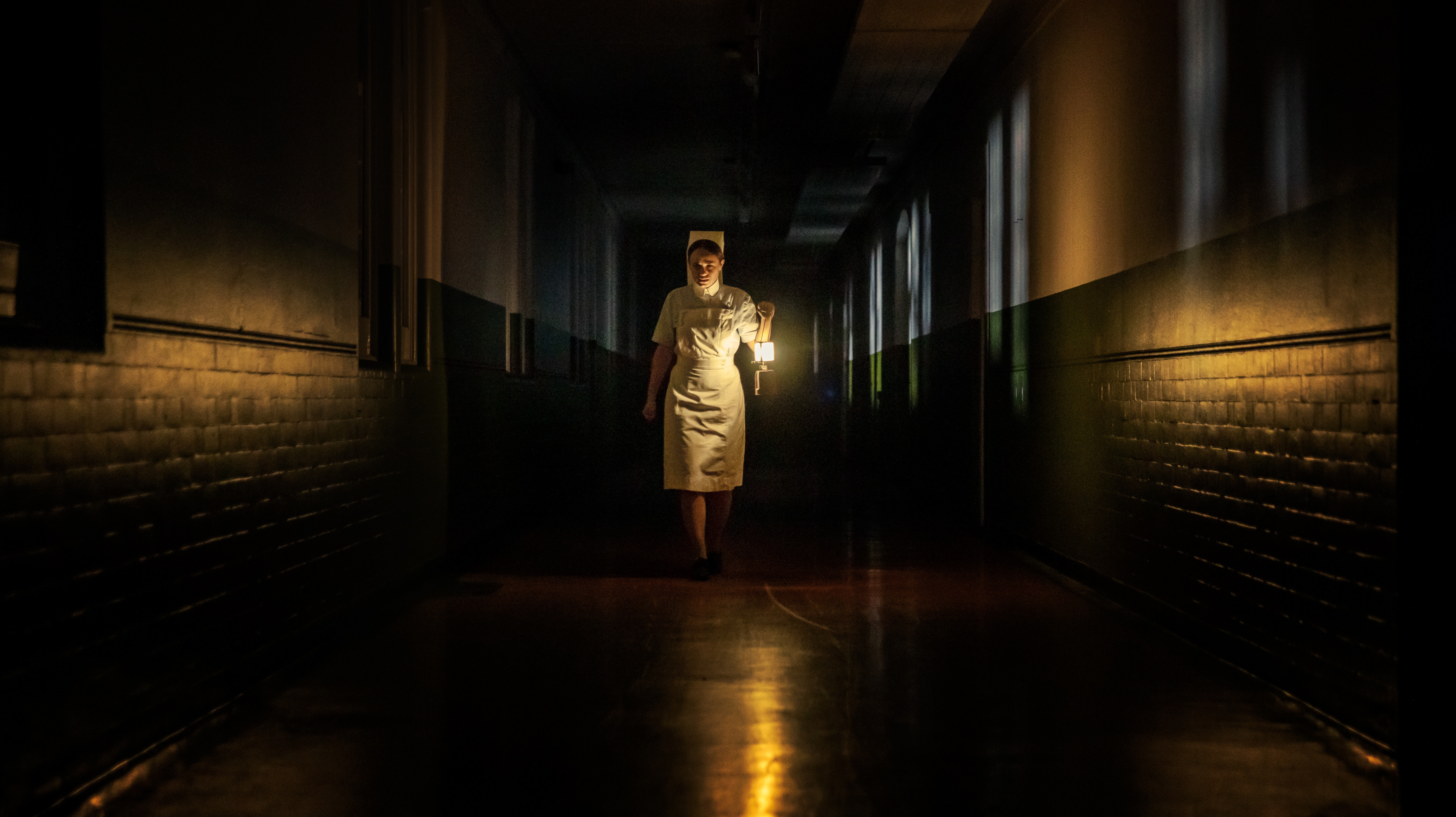Blindingly obvious subtext dims the scares of blackout horror movie The Power

Moralism and horror have always gone hand in hand, but the recent trend toward ostensibly scary movies that clonk you upside the head with their message has led to a global gooseflesh shortage. Set in January 1974, when labor disputes saw England mandate blackouts in order to conserve electricity, The Power isn’t “merely” about how terrifying it can be when the power goes off. It’s also—much more emphatically—about the ways that power can be abused by seemingly benign authority figures. While that’s not an inherently terrible idea, first-time writer-director Corinna Faith seems to have reverse-engineered her narrative from her title’s cutesy double meaning. The movie’s period spookiness and its #MeToo outrage have virtually nothing to do each with other, diminishing the efficacy of both and making it feel like a tract.
They theoretically connect through Val (Rose Williams), a young woman who’s first seen awakening from a nightmare and switching on every light in her flat. Fear of the dark makes her the worst possible nurse to be placed on the graveyard shift during a blackout, especially considering that it’s her very first day—and night, as it turns out—on the job. Still, she’s alone only in her particular wing. Other nurses are on hand, one of whom (Emma Rigby) chances to be an old school acquaintance of Val’s, conveniently prepared to make constant, vague allusions to some episode in which Val apparently brought what are widely believed to be false charges of sexual assault against someone. Another nurse (Nuala McGowan) passes the long, lonely hours reading a first edition of Stephen King’s Carrie (a slight cheat, as the book wasn’t published until three months later), approvingly telling Val that it’s about “a girly [who] has enough and brings the whole place down.” Things will be set on fire in this hospital, too, before the night is over.
Who’s had enough, though? Faith isn’t inclined to leave the question ambiguous, though she does at least defer explanation until the film’s second half, throwing in some red herrings along the way. The Power is strongest early on, when it consists largely of Val looking petrified while wandering dark corridors with a lantern, throwing menacing shadows on the walls. (In reality, as you’d expect, hospitals were exempt from the blackouts.) Occasional flashes of discordant imagery suggest that there’s more going on than we’re actually seeing, and it’s briefly disturbingly unclear whether the malevolent force at work perceives Val as a potential victim or an unwitting vessel. Unfortunately, it all gets laboriously spelled out, complete with the true, corporeal villain helpfully telling Val, “I don’t have to listen to you. I have the power here.” Faith finds a way to stage this final confrontation in an underlit room, but by that point the blackout is over and the film’s conceit has long since become irrelevant. It was sufficient for Poltergeist to reveal that the house was illegally built over a cemetery; one particular restless spirit conveying its grim backstory, via possession’s equivalent of charades, would have made that movie more pointed but much less frightening.